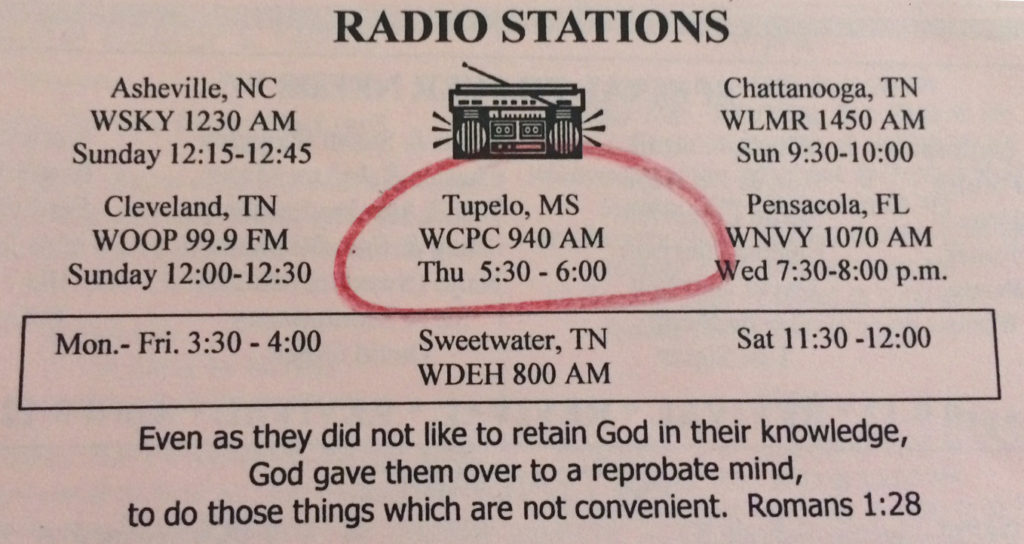Current Radio Channels for our Ministry Live Broadcasts
Current Context of Chaplaincy in Bulgaria
 We are proud to announce that the Master’s of Chaplaincy Ministry Program, we designed and launched in Bulgaria in 2006, has been selected to be part of the Social Service Program of New Bulgarian University. After being for years a valuable part of the regular curriculum of the Bulgarian Evangelical Theological Institute and the St. Trivelius Institute in the capital Sofia, the chaplaincy program has received the highest level of recognition as successful graduates will be finally able to receive government recognized degrees and apply their knowledge and training in chaplaincy on a professional level. The chaplaincy program can also serve within the Integration Proposal of local NATO programs and be instrumental in dealing with the enormous wave of Middle East migrants crossing through Bulgaria today.
We are proud to announce that the Master’s of Chaplaincy Ministry Program, we designed and launched in Bulgaria in 2006, has been selected to be part of the Social Service Program of New Bulgarian University. After being for years a valuable part of the regular curriculum of the Bulgarian Evangelical Theological Institute and the St. Trivelius Institute in the capital Sofia, the chaplaincy program has received the highest level of recognition as successful graduates will be finally able to receive government recognized degrees and apply their knowledge and training in chaplaincy on a professional level. The chaplaincy program can also serve within the Integration Proposal of local NATO programs and be instrumental in dealing with the enormous wave of Middle East migrants crossing through Bulgaria today.
The fall of the Berlin Wall introduced a new reality that Bulgaria was not prepared to embrace. The end of Communism was unable to tear down the communist mentality. Today, an entire Bulgarian generation lives with the scars inflicted by their experience under years of the Communist Regime, while another generation lives with an immense historical gap that has formed a new political, social, economical and cultural reality.
Three points are worth noting about Bulgaria’s Postcommunist context. First, in the beginning of the 21st century Bulgaria is left with armed forces, which were organized and influenced by the Soviet model and still act accordingly. The bureaucratic infrastructure disallows and discourages any changes apart from carefully chosen decisions that keep the army’s activities to the minimum possible. The two main factors needed for any change to occur, namely decision-making processes and chain of command, still operate under an Eastern Soviet paradigm.
Second, atheistic morale has gained the status of a positive military qualification in the Bulgarian military. This may sound familiar for any given army; however, in most cases it replaces a religious attitude with an atheistic one. In the Postcommunist context, atheistic beliefs pervade and even when a soldier experiences a genuine need for spirituality, in most cases s/he has no religious root to which to return. This lack of alternative or spiritual choice results in a pessimistic morale, intensified by the required mandatory military services.
Third, a Postcommunist mentality with definite Balkan characteristics rules not only the army but also the country as a whole. The economical, political and cultural crises have remained an undividable part of Bulgaria’s reality in the past 16 years. There, Postcommunist mentality holds captive every progressive thought and idea.
It is natural to conclude that the active solider within the Bulgarian Armed Forces is left without much choice when it comes to his/her personal and spiritual development. A positive career development is possible only when pressed by the economical factors one accepts to be part of a highly inactive bureaucratic machine. On the other hand, any attempt for spiritual growth is constrained and receives little privilege to become fully expressed. Naturally, such dynamics decrease one’s motivation for further development due to the lack of morale emerging from a personal spirituality. And because an army without a spirit is no army at all, the current condition of the Bulgarian Army is in much need of revival.
Also important [click to read]:
- U.S. Department of State recognizes our chaplaincy efforts in Bulgaria
- Bulgarian Chaplaincy Association: Integration Proposal with Local NATO Programs
- Bulgarian Chaplaincy Association: Vision and Resolution
- Chronology of our role and involvement in developing Church of God chaplaincy in Bulgaria since 2001
- Master’s of Chaplaincy Ministry Program in Bulgaria Reflections
- The Past Decade of Chaplaincy in Bulgaria (2006-2016)
- Related Publications and Presentations by Cup & Cross Ministries International
Current Status of Chaplaincy in Bulgaria

This update on the current status of Chaplaincy in Bulgaria became necessary in light of the recent parliament vote (October 5, 2014) and consecutive talks on Bulgaria’s national security and upcoming defense reforms. While the government enters a post-election mode to appoint all cabinet members, the legal question about chaplaincy in Bulgaria still remains open. A decade after entering NATO and the European Union as a fully ratified member, Bulgaria is the only country within both organizations without military (or any otherwise legalized) chaplaincy.
About the same amount of time has passed since we established the Bulgarian Chaplaincy Association with the publication of its strategic program “Underground Chaplaincy in Bulgaria” and the establishment of our Masters Program in Chaplaincy Ministry in Sofia. Since that time, many international organizations have contributed to the chaplaincy restoration process with research and historic publications or occasional chaplaincy seminars and conferences across the country. Among them are Military Chaplain Fellowship (MCF), Military Ministries International (MMI), Ministry to the Military, various (IAEC), Chaplaincy Commissions and many others.
However, with these investments of time and resources in the cause, changes within Bulgaria’s law are still to be made and our military personnel remain without active duty chaplains. This result simply proves once again that restoring chaplaincy in Bulgaria cannot and should not be an external process dictated by organizational agendas which are separated from the people. On the contrary, the necessary changes must emerge from grassroots, from among the people, in order to be fully politically realized as both necessity and empowerment.
In this process, the role of the local church is also detrimental. It is certainly a great effort that individual ministers and their teams visit prisoners on weekly or monthly basis. It is also admirable that emergency outfits formed by church members quickly respond to what now seems a constant chain of disastrous events (flooding, earthquakes, freezing weather, etc.). But if the bottom line of results does not affect the changes within the system that can make chaplaincy legally available within both military and civil organization all otherwise attractive efforts are simply futile. They not only miss the mark, but exhaust time and resources of the church and are overall obstructive to the goal at hand.
Therefore, changes within the current status of chaplaincy in Bulgaria must be sought once again with a unifying strategy that uses small but crucial milestones to promote change within the current legal and army systems. Otherwise, the restoration of chaplaincy will be forced again in the periphery of political and social issues and will never become a real priority.
More Publications on the Topic and History of Events:
- Chaplaincy Conference and Master’s of Chaplaincy
- Chaplaincy Course in Yambol, BULGARIA
- Bulgarian Chaplaincy Association Annual Meeting
- Family Seminar for Military Men and Women
- Cup & Cross Ministries in Church of God Publications
- The Case of a NATO Chaplaincy Model within the Bulgarian Army
- 10 Years of Military Ministry in Bulgaria
- Bulgarian Chaplaincy Associations Recognized by U.S. Department of State
- National Chaplaincy Conference
- Bulgarian Chaplaincy Association Gains Legal Status
- Chaplain Dees Visits Bulgaria
- Chaplaincy Course at the Bulgarian Evangelical Theological Institute
- Bulgarian Chaplaincy Association
- Meeting the NATO Chaplain
- National Chaplaincy Meeting
- Chaplaincy Developments in Bulgaria
- U.S. Bases in Bulgaria
- National Chaplaincy Meeting
- Chaplaincy in Bulgaria
- HEALTHCARE CHAPLAINCY IN BULGARIA
- Chaplaincy in Bulgaria
- Mission Bulgaria









